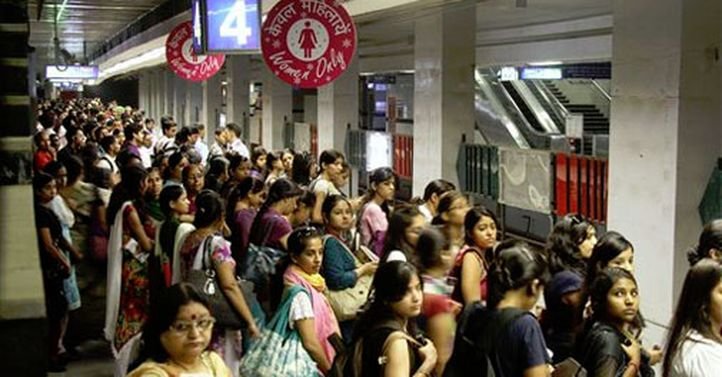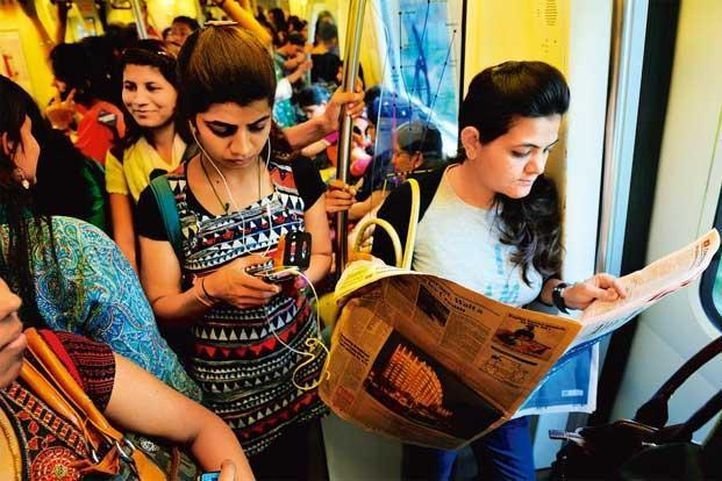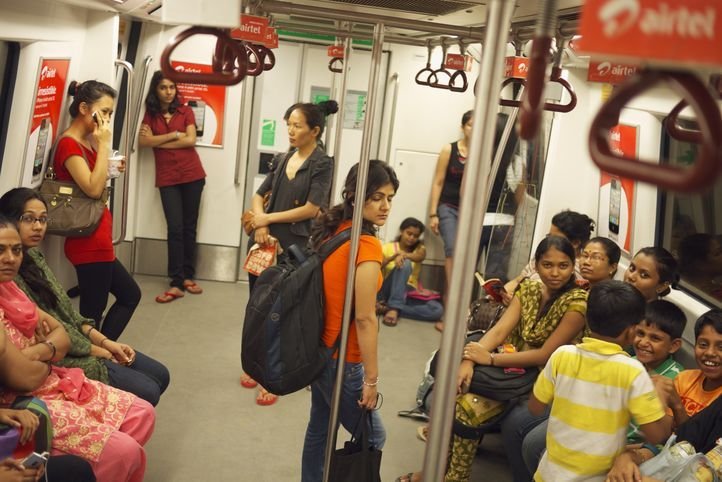Three years ago, I moved to Delhi for college. It’s been a roller coaster ride, involving a lot of travelling around the city… for classes, dates, parties, protest marches, concerts, and everything else. And the Delhi Metro has been my trusted ride to everywhere.The Delhi Metro is an absolute boon to this sprawling, crazy city. After 20 long years of swearing by the Calcutta Metro while growing up, I was bowled over by how swanky and well oiled the Delhi setup was. Other than the frequency, the air-conditioned coaches, and general awesomeness, the biggest gaping difference between Kolkata Metro and its Delhi counterpart was the arrangement for reservation of an entire compartment dedicated for women.
What with Delhi being hailed as the most unsafe metropolitan in the nation, having a dedicated compartment for women on every train seemed like the most convenient and sensible arrangement. But the feminist in me could not help but ponder over the inherent problem with this setup.

Dedicated seating for women, areas demarcated specifically for women, are a common sight in public transport systems across the country. While this arrangement essentially seeks to provide a safe, comfortable and convenient space for women while travelling, it also contributes to the process of alienating women from general public spaces with the overt intention of providing ‘protection’ from harassment. We’re all aware of the circumstances that triggered the measure for reservation of dedicated spaces for women. These reserved seats, compartments, areas for the female population have essentially served to segregate women, as a means to combat the rampant cases of harassment and molestation they face on a day-to-day basis.
Yes, segregation of spaces is a solution. But a short-sighted one.

In the larger scheme of things, in our struggle for gender equality, reservation poses an impediment to the feminist movement. Yes, reservation is necessary to ensure inclusion, to ensure that women can avail of public transport without the fear of being harassed during the commute. But to what extent?Women are still being harassed on the streets. The seat reservation arrangement perpetuates the notion that women need differential treatment. The discrimination in public transport reinforces the gender bias that every aspect of our day-to-day lives is plagued with. More than anything else it reinstates the feeling amongst women that they don’t belong.
In my opinion, the more effective way to go about limiting sexual harassment of women in urban spaces is not by imposing restrictions, but to normalize the idea of women reclaiming public spaces.
Instead of perpetuating the language of respectability and territoriality that casts women as victims who trespass into ‘wrong places,’ at the ‘wrong times,’ wearing the ‘wrong clothes’, we can challenge the status quo by challenging the degree of surveillance on how women access and travel in public spaces.
India needs to move away from a protection-based discourse to a rights-based discourse to change the way society views women stepping out.

Women are more often than not warned about how they are risking their safety by travelling among men. But what women really want and need is not a safety which is conditional on them behaving a certain way, but the unconditional right to be in public space and to take risks.
I understand that there is a deep rooted sense of discomfort and fear associated with being present in a crowded space amidst a sea of men. But that is the very mentality that needs to be challenged.
I believe that if we normalize the idea of unrestricted occupation of public spaces by women, it would be an effective means to ensure safer spaces for women, albeit a long drawn one.

















